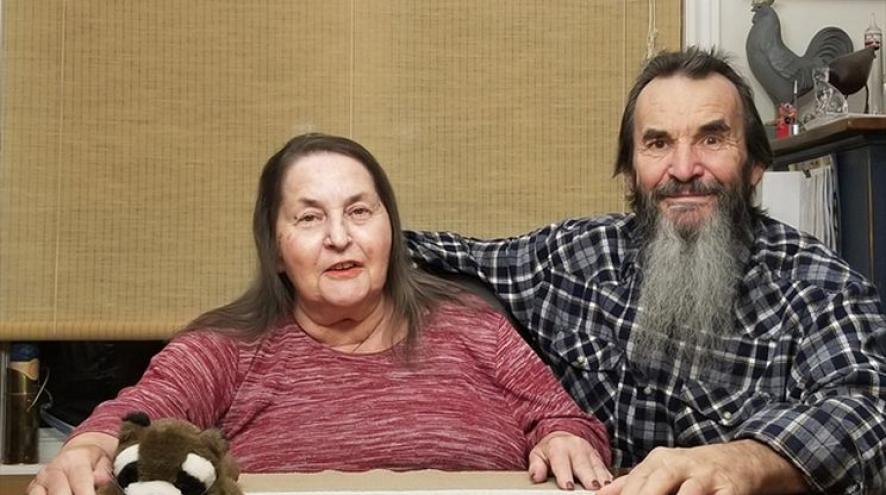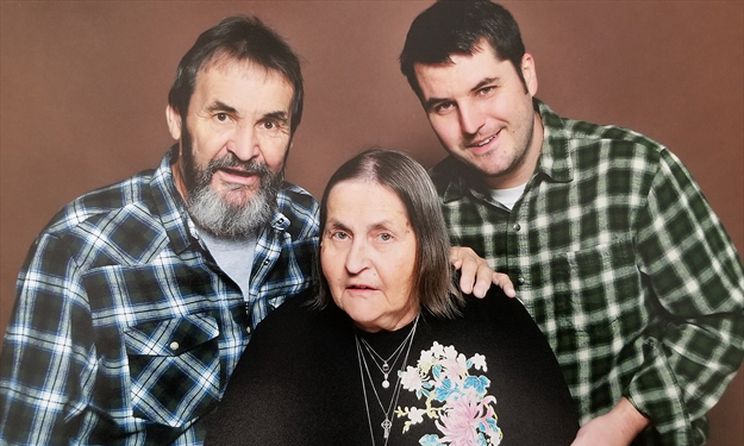Muskoka love affair surviving leukemia, Alzheimer's
Norm Tasch was told he had leukemia about a year ago; his wife Barbara was diagnosed with Alzheimer’s disease three years ago.

'I know if the roles were reversed, she would take care of me'
Bracebridge Examiner, Monday, January 25, 2021
Norm Tasch was told he had leukemia about a year ago; his wife Barbara was diagnosed with Alzheimer’s disease three years ago.
Norm and his son Chris are the primary caregivers for Barb who, as a result of a seizure, has little control over her arms and hands and needs assistance with personal care, including eating and going up and down the stairs.
“She’s afraid of falling,” said Norm. “She hasn’t fallen, but I think all these things you see on TV with all these old people falling all the time — she has trouble telling the difference between reality and TV.”
Norm's day at his Bracebridge home begins early. He rises a few hours before his wife, taking care of any paperwork and chores that need to be tended to, the dishes often wait until morning because Norm finds himself too tired the night before. He has his breakfast and prepares hers. He sips his coffee while assisting her eating. Most meals he and Chris share the duties; they flank her as she sits at the head of the table.
“She can pick up a few things, but it’s very awkward,” he said.

Her memory is poor, forgetting conversations minutes later although she often shares memories from years past — memories Norm holds dear and enjoys, and he doesn’t give caring for Barb a thought.
There is a choke of emotion in his voice for the woman to whom he’s been married for more than five decades and mother to his four children, “I know that if the roles were reversed, she would take care of me.”
There are days that seem to stretch on beyond the 24 hours of the clock, and he admits he gets weak himself and needs to sit and rest periodically. He is fortunate to have his son to tend to many of the chores and is grateful for assistance he receives from the Alzheimer Society of Muskoka, the VON of Muskoka and the LHIN for arranging a personal support worker, an occupational therapist and in-home nursing.
“It’s the Alzheimer’s (Society) you really need to go to. They help you get everything. They’re amazing people,” he said. “Before COVID, I would go there twice a month just to sit there and have a coffee and talk to them and cried on their shoulders. They’re very understanding and lovely people, and they run a ton of courses and classes for Alzheimer’s.”
The pandemic has not stopped participation in these groups and classes, thanks to Zoom meetings.
According to Karen Quemby, executive director for the Alzheimer Society of Muskoka, pre-COVID groups are held in each community once a week. They have lost a few people for reasons including a lack of technology, but Quemby says, in some cases, they are providing more support with caregivers able to connect every week.
“We hope, after COVID, that we’ll be able to continue to run support groups online as an add-on when we return to going back to face to face,” she said.
Getting face to face, when it is safe to do so, is a high priority for the organization and, in order to help combat some of the isolation associated with the pandemic, the organization plans to put initiatives in place immediately.
For more information on the Alzheimer Society of Muskoka, visit alzheimer.ca/Muskoka or call 705-645-5621.
STORY BEHIND THE STORY: In 2019-20, the Alzheimer Society of Muskoka had a caseload of clients of 783, a 14.5-per-cent increase from the year before. January is Alzheimer Awareness Month to increase awareness and reduce the stigma of Alzheimer’s. It behooves us to assist with that goal.
